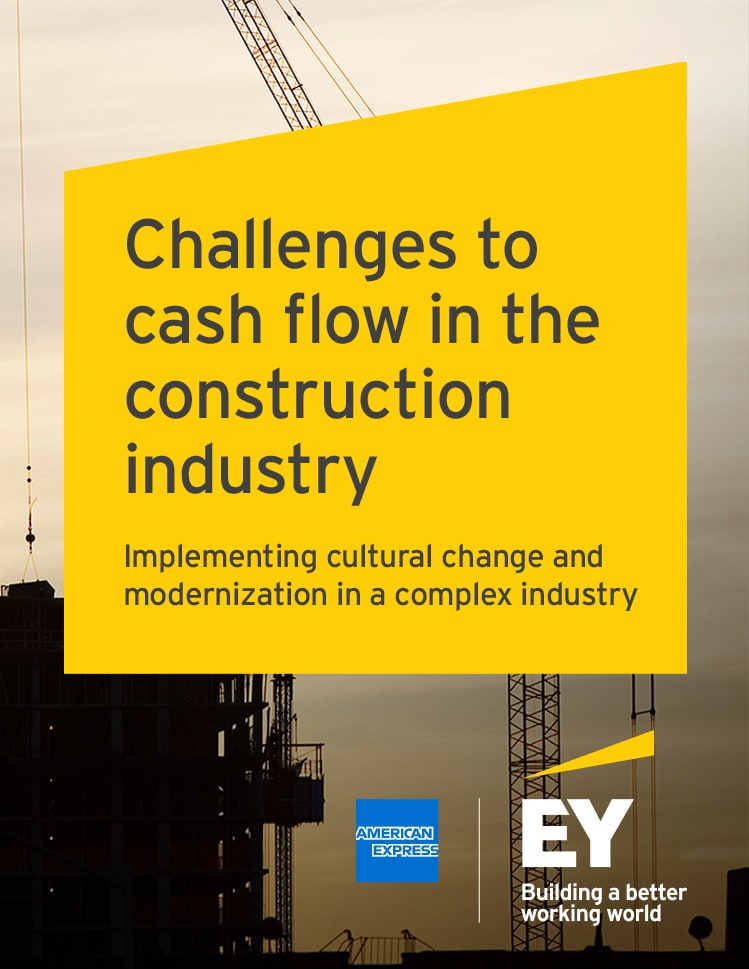| “Cash is king” in the construction industry, and that will remain the case, especially if we consider its constant need to finance large projects, withstand long collections cycles and manage cost overruns. Not only that, but construction also requires substantial investment to enable growth and modernization in an ever-competitive environment. In this white paper, we explore current challenges that construction industry organizations face in relation to their management of working capital and cash flow. Many of the findings and insights were driven by feedback from finance leaders from 24 construction companies and industry associations from across Canada during a series of discussion roundtables co-hosted in late 2018 by EY and American Express. |
|
The construction and engineering industry consists of a number of different sectors, each with its own unique operational and financial challenges. How these organizations interact in the project value chains is a key part of how cash is being trapped. There is a strong case for change in the industry that has the potential to deliver significant efficiency and cash low gains. However, change isn’t easy in an industry comprised of many entrenched practices. Canada continues to follow the path of other countries, adopting prompt payment legislation with a primary focus on protecting the financial sustainability of smaller operators in the industry. Even though legislation will be a key component for implementing change, there is a degree of skepticism as to how it will be enforced. Additionally, there are concerns about how such payment shifts will address and improve the resolution of key industry challenges, such as the complexity of contracts and change orders, information demands of billing, limited system integration, maintaining accurate time and expense records, and others. While not all the inefficiencies and complexities in the industry can be eliminated, standing still is no longer an option. Improving cash flow throughout the industry is a must and will require a cultural shift. It demands an increased focus on finding new efficiencies, driving change internally and taking responsibility for improving the interactions between project and industry partners. The benefits are significant for everyone. |
|
| Contacts: Dwain Neckles, Vice President Large Market Global Commercial Services American Express |
Peter Barnett, Sales Director Global Commercial Services American Express |
This article is intended for general informational purposes only and does not constitute legal advice or an opinion on any issue. It should not be regarded as comprehensive or a substitute for professional advice.




